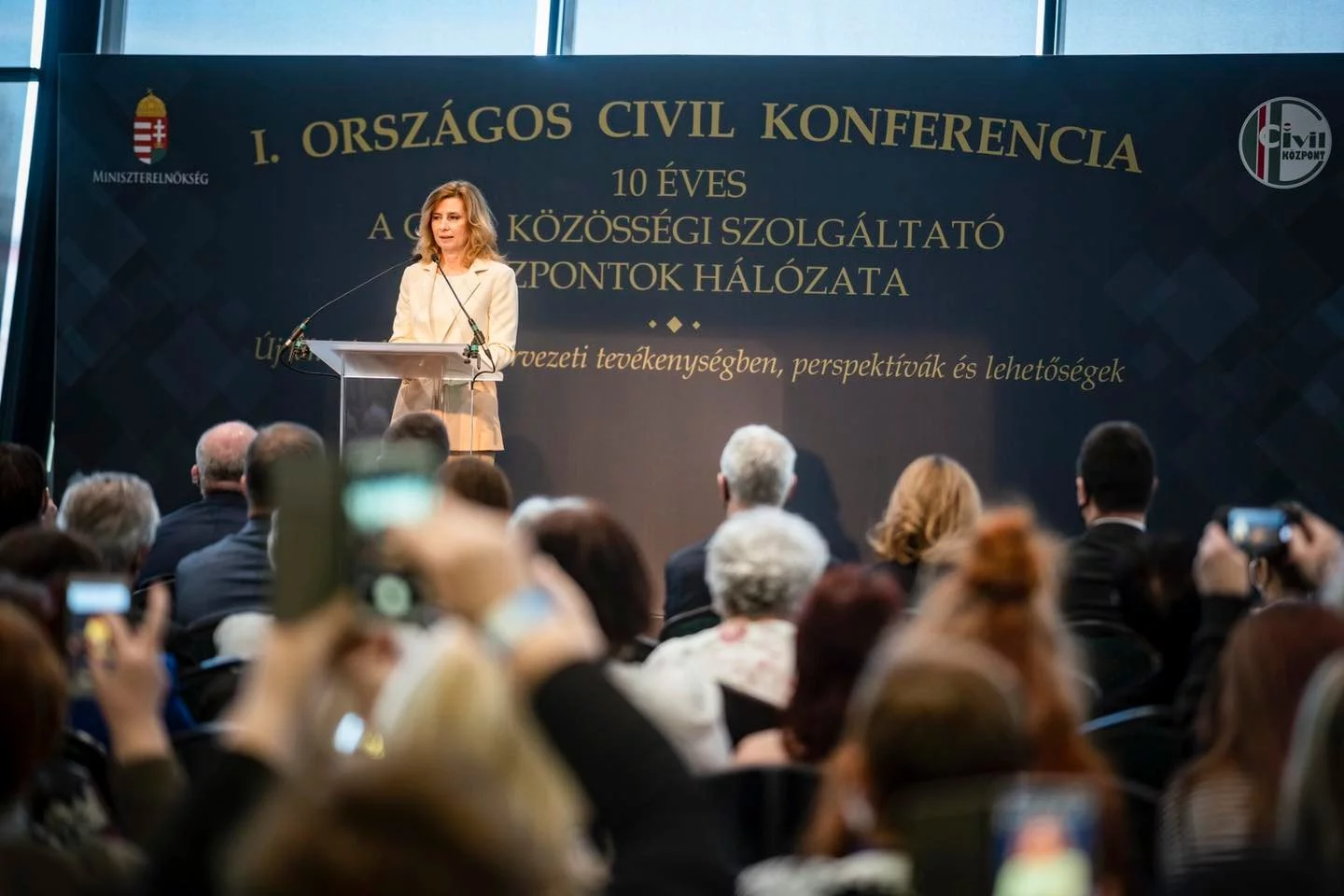First Lady: 1,200 children remained orphan due to COVID in Hungary

“We Hungarians are a kind-hearted people; in times of trouble we pull together with enormous strength,” First Lady Anita Herczegh said in her address to the First National Civil Conference in Budapest on Friday.
Herczeg, a member of the board of trustees of the Istvan Regoczi Foundation which supports children who have been orphaned or semi-orphaned due to Covid-19, praised charity work undertaken by civil groups and volunteers, adding: “We must prove our love not with words but through actions.”
“Civil activists, volunteers, and donors will walk the cohesive path of love; we not only wish for the benefit of others but also serve that goal,” she said, adding “this goodwill service is our mission”.
The First Lady praised the efforts of the Hungarian Maltese Charity, the Catholic Charity, and the Hungarian Red Cross. “More and more people have helped the sick, health-care staff, those in [Covid] isolation and families of the victims,” she said.
Herczegh noted that 1,200 children had lost one or both parents in the coronavirus pandemic, and said that her and President János Áder’s initiative for the Regőczi István Foundation was aimed at helping those orphans in the long run.
Addressing the same conference, Gergely Gulyás, the prime minister’s chief of staff, said
“civil activists are those that recognise the hardships of individuals and communities and work to find actual solutions”.
“When we talk about the civil sector, we don’t mean NGO’s stuffed with funds from obscure sources … acting as the extended hands of speculators wishing to interfere,” Gulyás said, adding that such organisations “change their position according to the daily interests of their paymasters.” In leftist circles, “a civil organisation is one financed by George Soros”, he added. “But now, when Amnesty International, one of George Soros’s favourites, the new Israeli government has declared an organisation supporting terrorism, the left wing should reconsider the definition of a civil group,” Gulyás said.
Gulyás noted that in 2020 there had been 60,673 foundations, non-profit organisations and associations, while the number of “civil groups in the classical sense” was also over 53,000 in Hungary. “This is a huge number and civil activities cover all areas,” he added.
At the conference, the For Value-building Communities awards were handed out. The two awards went to Piroska Kontha, founder of a hospice operated by the Reformed Church in Majosháza, south of Budapest, as well as the Reformed Church for Szatmar association in north-eastern Hungary.
Source: MTI







